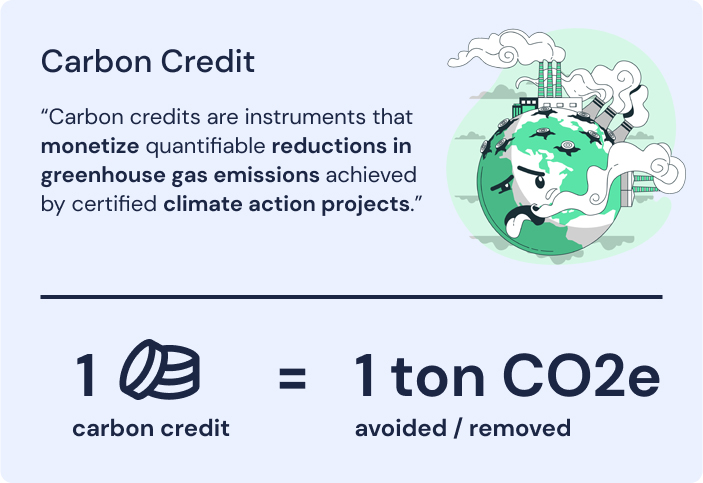
Carbon offsetting is the process whereby an individual or an organisation buys carbon credits to offset its own greenhouse gas emissions. A carbon credit is a voluntary carbon market allowance that certifies that one tonne of carbon dioxide or equivalent other greenhouse gases has not been emitted or sequestered from the atmosphere.
One carbon credit offsets the emission of one tonne of carbon dioxide equivalent greenhouse gas. Carbon offset schemes allow individuals and companies around the world to invest in environmental projects to offset their own carbon emissions.
Some people and organisations offset their entire carbon footprint, while others seek to neutralise the impact of a specific activity, such as a flight. To do this, a person visits an offsetting website, uses online calculators to calculate the emissions from their travel and then pays the offsetting company to reduce emissions by the same amount in other parts of the world. This makes the flight 'carbon neutral'.
There are 3+1 main types of carbon offsetting projects:
- Forestry projects conserve and restore forest ecosystems, which play a vital role in carbon sequestration and provide significant benefits.
- Energy projects, on the other hand, reduce the use of fossil fuels by producing clean, renewable energy or increasing energy efficiency.
- And blue carbon projects protect coastal ecosystems such as mangrove forests or wetlands that store significant amounts of carbon.
- HelloGreen's new solution, which could be a further development of the second point, is based on a completely new approach. We have created an energy production project that not only eliminates the environmental burden of carbon emissions, but also provides a recyclable feedstock.
Basically, both carbon credits and carbon offsets are accounting mechanisms. They provide a balance in the pollution balance sheet. The big idea behind credits and offsets is that since CO2 is the same gas anywhere in the world, it doesn't matter where emissions are reduced. The more common economic thinking now is that it makes financial sense for both consumers and companies to reduce emissions where it is cheapest and easiest, even if it does not affect their own operations. This is a mindset that needs to change if this system is to make a real difference.


